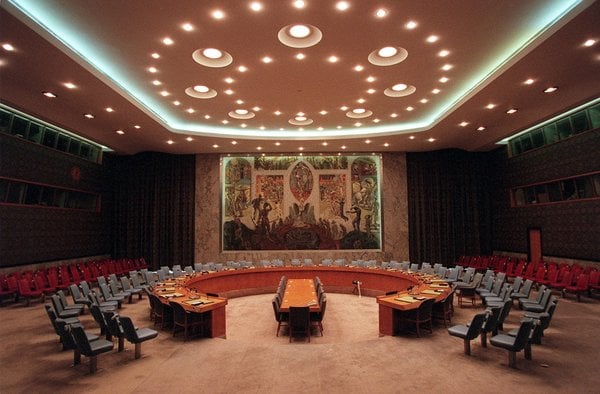 President Woodrow Wilson has long fascinated me. He is one of those presidents that is a giant in history, but few people know much about him. Steven Spielberg has never made a movie about him, you don’t hear his name referenced on the Sunday talk shows, and he seems entirely missing from pop-culture. And yet the world we live in and the debate we are having about unilateral intervention in Syria would be very different without the contribution he made to history.
President Woodrow Wilson has long fascinated me. He is one of those presidents that is a giant in history, but few people know much about him. Steven Spielberg has never made a movie about him, you don’t hear his name referenced on the Sunday talk shows, and he seems entirely missing from pop-culture. And yet the world we live in and the debate we are having about unilateral intervention in Syria would be very different without the contribution he made to history.
Woodrow Wilson’s tireless effort to found the League of Nations after the tragedy of World War I was born of a desire not only to end war but to gather the nations into a new community that could mutually check each other and collectively prevent the atrocities of war. It was his desire to build a more just and democratic world out of the ashes of that epic war. His efforts were appreciated and crowds of people treated him like a rock star when he traveled abroad, but at home an isolationist Congress failed to approve the League treaty, leaving the new world body without the backing of the United States. Though the League failed it ultimately led to the United Nations that we know today, the world body that can and should act to check countries that violate international law and indiscriminately massacre unarmed civilians using banned weapons.
As Samantha Power, our new U.S. Ambassador to the U.N., noted recently, the U.N. system is broken. The promise and potential of a responsible world body has been undermined by great powers who do not subscribe to the standards of universal values embodied by the U.N. Charter, a document they signed and are supposed to uphold. In a better world, countries that demonstrate by their actions that they do not support the Charter would be expelled from the U.N. It’s a membership organization after all, you pay your dues, follow the rules, and you get to participate. If not, you’re out. This is not that world.
What kind of world is it? Apparently, this is a world where a dictator can gas his own people by the thousands and the world stands by in horror but nothing more. This is a world where great powers pay lip-service to notions of international law, standards of behavior, and rules of war. We act as if the rules are real, but then turn away when they are violated, willfully ignoring the harsh reality that rules not enforced are not rules at all. We have a world body, the United Nations, that is supposed to represent those international rules, and the Security Council, charged with promoting and protecting peace and security, that seem entirely ineffectual, a debating club, nothing more. The United Nations has failed. That institution, founded in San Francisco and headquartered in New York, inspired by U.S. idealism, has utterly failed.
If the U.N. won’t act, then the U.S. must, even if it means going it alone. That is the only way forward because going backward is not an option. We’ve already lived that world in the 20th Century, the world of selfish nationalism in which people said, “Hey, as long as they don’t attack us, they can do whatever they want to their own people,” even if that meant gassing them or putting them in concentration camps. It was not our fight, until we decided that it was.
Dictators behaving badly, that was the world of the 20th century and now we are at a defining moment of the still young 21st century, a moment to demonstrate that we have learned from history and that we are resolved that this world will be better, that dictators don’t have free rein to abuse our shared values and that collective peace and world order are worth defending. The war dead of WWI and WWII demand that we take on the fight, their fight, and make it our own, so that the world of the 21st century will be different, and better, than theirs. No more dictators, no more massacres, no more genocide.
Of course, there have always been dictators and our international system has always had a tolerance for petty dictators as long as they stay in their place. It’s when they overstep their bounds that we have a problem. When we say “never again” in the context of the atrocities of WW II we evoke a collective resolve to challenge dictators when they cross the line and become a threat to their people and their neighbors. It means a determination to use all the diplomatic, economic, and military means at our disposal to make sure there are no more Hitlers. If it doesn’t mean that, then it means nothing.
What kind of world do we want this to be? What kind of world are we shaping by our actions and inactions? The U.S. will soon give an answer to that question. My hope is that the U.S. will rise to the occasion and offer the world the kind of leadership that only the U.S. can.